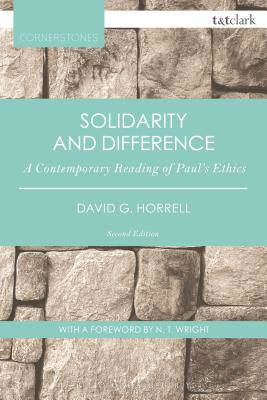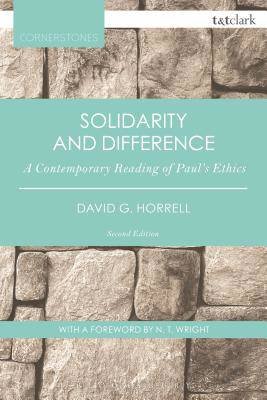
- Afhalen na 1 uur in een winkel met voorraad
- Gratis thuislevering in België vanaf € 30
- Ruim aanbod met 7 miljoen producten
- Afhalen na 1 uur in een winkel met voorraad
- Gratis thuislevering in België vanaf € 30
- Ruim aanbod met 7 miljoen producten
Zoeken
€ 83,45
+ 166 punten
Omschrijving
David G. Horrell presents a study of Pauline ethics, examining how Paul's moral discourse envisages and constructs communities in which there is a strong sense of solidarity but also legitimate difference in various aspects of ethical practice. Horrell reads New Testament texts with an explicit awareness of contemporary ethical theory, and assesses Paul's contribution as a moral thinker in the context of modern debate.
Using a framework indebted to the social sciences, as well as to contemporary ethical theory, Horrell examines the construction of community in Paul's letters, the notions of purity, boundaries and identity, Paul's attempts to deal with diversity in his churches, the role of imitating Christ in Paul's ethics, and the ethic Paul develops for interaction with 'outsiders'. Finally, the pattern of Paul's moral thinking is considered in relation to the liberal-communitarian debate, with explicit consideration given to the central moral norms of Pauline thought, and the prospects for, and problems with, appropriating these in the contemporary world. This Cornerstones edition includes an extended reflective introduction and a substantial foreword from N.T. Wright.
Using a framework indebted to the social sciences, as well as to contemporary ethical theory, Horrell examines the construction of community in Paul's letters, the notions of purity, boundaries and identity, Paul's attempts to deal with diversity in his churches, the role of imitating Christ in Paul's ethics, and the ethic Paul develops for interaction with 'outsiders'. Finally, the pattern of Paul's moral thinking is considered in relation to the liberal-communitarian debate, with explicit consideration given to the central moral norms of Pauline thought, and the prospects for, and problems with, appropriating these in the contemporary world. This Cornerstones edition includes an extended reflective introduction and a substantial foreword from N.T. Wright.
Specificaties
Betrokkenen
- Auteur(s):
- Uitgeverij:
Inhoud
- Aantal bladzijden:
- 440
- Taal:
- Engels
- Reeks:
Eigenschappen
- Productcode (EAN):
- 9780567662828
- Verschijningsdatum:
- 19/11/2015
- Uitvoering:
- Paperback
- Formaat:
- Trade paperback (VS)
- Afmetingen:
- 157 mm x 234 mm
- Gewicht:
- 748 g

Alleen bij Standaard Boekhandel
+ 166 punten op je klantenkaart van Standaard Boekhandel
Beoordelingen
We publiceren alleen reviews die voldoen aan de voorwaarden voor reviews. Bekijk onze voorwaarden voor reviews.








